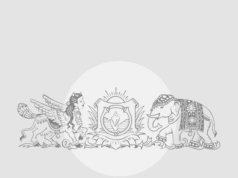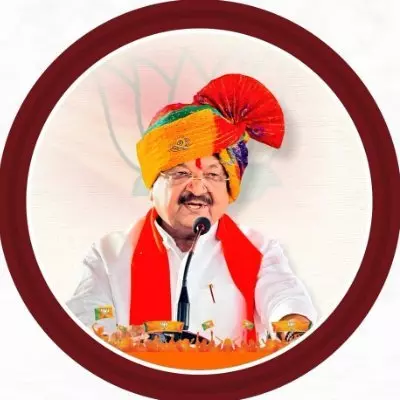Hyderabad:Justice Nagesh Bheemapaka of the Telangana High Court came down heavily on the Hyderabad Cricket Association (HCA) for insisting on Aadhaar OTP verification from a minor cricket player as a condition for registration to the BCCI’s Under-16 tournaments. The judge declared such a demand was unjustified, illegal and violative of the minor’s right to privacy and directed the HCA to immediately register the player and allow him to participate in official tournaments. The writ plea, filed by Master Shiva Ramakrishna Terli, a 15-year-old cricketer who previously captained the Hyderabad U-14 team, contended that he was unfairly barred from playing due to HCA’s insistence on Aadhaar OTP sharing, despite already having provided multiple valid identity and residence documents, including a passport, birth certificate and school records. The OTP was demanded over a phone call late at night on October 3, 2024, allegedly with threats that non-compliance would jeopardise his future in cricket. Subsequently, a first information report was filed against HCA officials under the BNS, the Aadhaar Act and the Information Technology Act for unauthorised access and threats. Despite the High Court issuing an interim order on November 6, 2024, restraining the respondents from enforcing the OTP requirement and directing them to permit the petitioner’s registration, HCA did not comply. The association defended its action by citing an anonymous complaint alleging the petitioner had two different birth certificates and had possibly manipulated his age. The court found that no proper inquiry or show-cause notice had been issued, and the association had acted in breach of its own grievance redressal mechanisms under Rule 41. The judge reiterated that Aadhaar OTP verification was not a mandatory requirement for registration with BCCI or HCA. Citing a UIDAI circular and multiple judgments, the court emphasised that Aadhaar can only be used to establish identity and not as conclusive proof of date of birth. For players in the Under-16 category, age eligibility is determined based on the TW3 bone maturity test, which the petitioner had cleared. The report of this test was in HCA’s possession, but the association failed to produce it before the court.
HC notice to officials for ignoring pension order
Justice T. Madhavi Devi of Telangana High Court ordered notice to senior officials of the state registration and stamps department in a contempt case about the release of pensionary benefits to a retired officer. The judge accepted the contempt case filed by K. Ashanna, a 70-year-old retired junior assistant and in-charge sub-registrar of Bhainsa, Adilabad district. The petitioner alleged that the respondent authorities failed to comply with the orders passed by the judge earlier. The petitioner contended that despite clear directions in a writ plea, the respondent authorities failed to implement the judgment and release his full pension and retirement benefits. Earlier the judge directed that the disciplinary proceedings initiated through a charge memo dated July 18, 2012, be deemed as dropped if not concluded, and further directed the authorities to release the petitioner’s full pension from the date of his retirement within three months. The petitioner contended that despite the directions, the respondents, including the principal secretary to the revenue (registration and stamps) department and the commissioner and inspector-general of registration and stamps, failed to comply with the directions and were guilty of contempt. The judge ordered notice to respondents.
HC grants anticipatory bail in cheating case
Justice J. Sreenivas Rao of Telangana High Court granted anticipatory bail to three individuals accused of cheating and criminal breach of trust in connection with a failed web series production deal. The judge was dealing with an anticipatory bail petition filed by Samudrala Srinivas Murthy, a consultant based in Mumbai, along with his sons Venkata Narayan Murthy and Gopala Murthy, all partners of Kahani Collective LLP. The trio approached the High Court seeking protection from arrest in relation to offences under cheating and criminal breach of trust. According to the complaint filed by Abhiyank Bhatnagar, partner of Anaika Productions LLP, the petitioners entered into a production service agreement on January 5, 2024, for the web series titled ‘Knots’. The complainant alleged that despite receiving `4.24 crore towards production, the petitioners failed to commence or complete the project and shot for only seven days. It was further alleged that forged documents were used and GST dues of over `24 lakh remained unpaid. Counsel for the petitioners argued that the dispute was civil in nature and governed by an arbitration clause in the agreement. He contended that the complaint was filed to harass the petitioners without invoking the contractual arbitration mechanism. Taking note of the absence of criminal antecedents and the arbitration clause in the agreement, the judge granted conditional anticipatory bail to the petitioners.
HC notice to health secy in pension contempt case
Justice Pulla Karthik of Telangana High Court ordered notice to Christina Z. Chongthu, principal secretary of the state medical and health department and another, in a contempt case filed by a retired assistant professor alleging wilful disobedience of a court order directing implementation of pensionary benefits. The judge is dealing with a contempt case filed by Dr P. Ramakrishna Murthy, a 71-year-old retired assistant professor from Dr B.R.K.R. Government Ayurvedic Hospital, Hyderabad. The petitioner alleged that despite the earlier directions of the judge in a writ plea, the respondent authorities failed to implement the order and release his pensionary benefits in accordance with the service rendered. The petitioner was one of several retired medical officers who earlier approached the High Court seeking implementation of orders passed by the Andhra Pradesh Administrative Tribunal, which directed that their prior service be treated as qualifying service to calculate pensionary benefits. The tribunal’s order was upheld by a division bench of the High Court and later confirmed by the Supreme Court. In the writ proceedings, the judge directed the authorities to implement the tribunal’s orders within eight weeks. However, the petitioner contended that no steps were taken by the respondents despite clear judicial directions.







